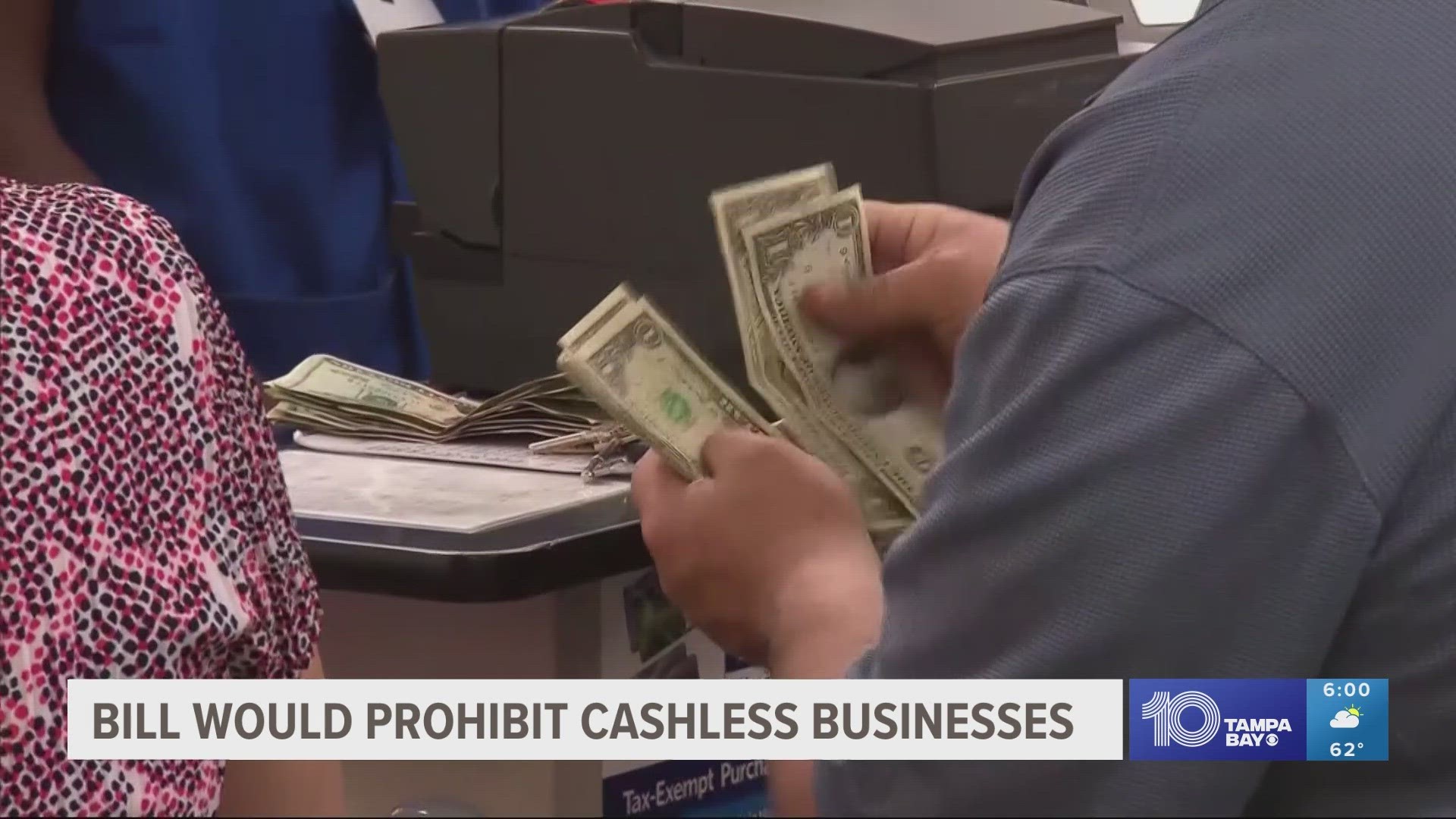TAMPA, Fla. — You’ve probably noticed an increasing number of businesses across the Tampa Bay area no longer accepting cash. That includes popular spots like Busch Gardens, Tropicana Field and Amelie Arena.
Now, there could be a bipartisan push in the next legislative session to force many businesses to accept cash.
From public transit to toll roads, sports venues, restaurants and recreation spots, more places now only accept plastic or electronic payments through smartphone apps and watches.
“If someone owes you $10 and they come in with a $10 bill, by God, you should take it,” said State Rep. Joel Rudman, R-Santa Rosa.
Rudman is one of two lawmakers introducing a bill in the upcoming legislative session that would make it illegal for most businesses to refuse cash. The idea has bipartisan support; Democratic State Sen. Shervin Jones of Miami-Dade County introduced companion legislation.
Some are concerned that poor people who can't get credit cards or older people who prefer to use cash are being treated unfairly. Others are concerned about privacy issues, such as the government tracking non-cash transactions or even controlling them.
“We are going to cut out significant segments of our society if we follow such policy. It's foolish,” Rudman said.
Some places have tried to address concerns by installing machines that will convert cash to cards on the spot. But under the proposed law, most businesses would have to accept actual cash and would prohibit them from charging a fee to do so.
A customer would also have to be physically present, not on the phone or online. And businesses would not have to accept bills larger than a $20 bill if they suspect counterfeit or for any transaction above $5,000.
It does not apply to sales that are not conducted in person, such as over the internet. Some businesses would be exempt from the proposed law, such as lawyers, accountants, insurance agents, and others that have not traditionally taken cash payments for their goods or services.
Cashless payments became far more popular during COVID-19, as people tried to avoid spreading the virus by handling money. A similar bill proposed before the pandemic never got any traction.

